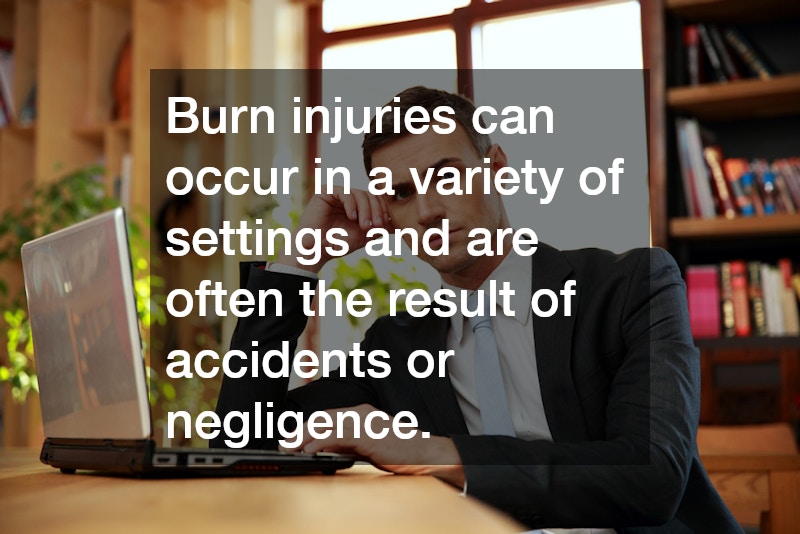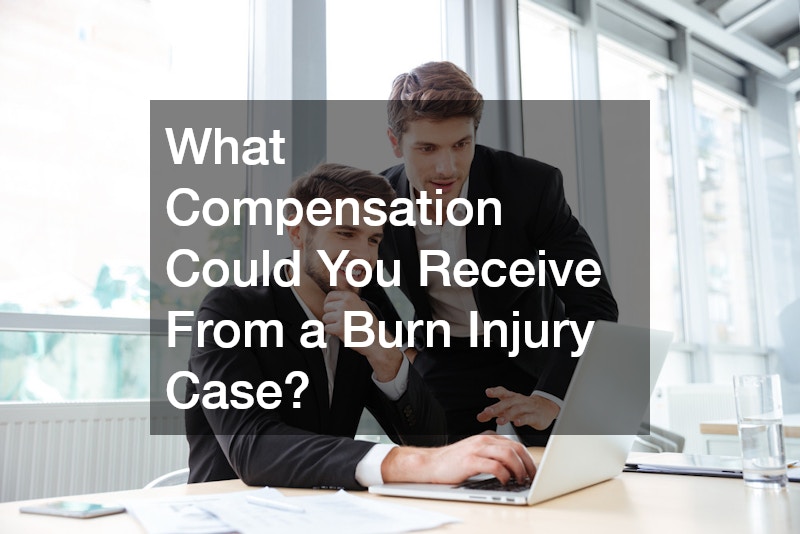
Burn injuries vary widely in severity, ranging from minor first-degree burns to life-threatening third-degree burns. Understanding the extent of the burn is crucial, as it influences the type of compensation that might be available. Legal professionals often categorize these burns based on how deeply they penetrate the skin and the affected body area.
First-degree burns, though painful, usually heal with minimal treatment and are considered less serious while second-degree burns cause blistering and more intense pain. Third-degree burns are the most severe, damaging all layers of the skin and often causing long-term nerve damage.
These severe cases often involve extensive medical treatment, rehabilitation, and sometimes, plastic surgery.
The emotional and psychological impact of severe burns can also be significant, affecting a victim’s quality of life long after the physical scars have healed. Anxiety, depression, and post-traumatic stress disorder are not uncommon among burn victims. This psychological component is an important consideration in compensation claims.
Common Causes of Burn Injuries
Burn injuries can occur in a variety of settings and are often the result of accidents or negligence. Common causes include workplace accidents, motor vehicle accidents, defective products, and residential fires. Each scenario presents unique challenges when pursuing compensation.
In workplaces, burn injuries might result from exposure to chemicals, high temperatures, or faulty equipment, often requiring the expertise of a burn injury lawyer in Denver to navigate complex labor laws. Domestic burns are frequently caused by kitchen accidents, overheating appliances, or malfunctioning fire alarms. In cases related to defective products, the liability might rest with manufacturers or distributors.
The cause of the burn injury often dictates the legal approach and potential for compensation. Lawyers must carefully analyze the circumstances to determine negligence and liability. This process can heavily influence the outcome of a compensation claim.
Immediate Steps to Take After a Burn Injury
After sustaining a burn injury, seeking immediate medical attention is crucial to minimize damage and optimize recovery. Timely treatment not only improves outcomes but also creates a medical record that supports any legal action you might pursue. Additionally, it is important to document everything related to the incident, including taking photographs of the injuries and recording any witness statements.
Contacting a burn injury lawyer in Denver should be among the first steps taken, as a legal expert can provide guidance on preserving evidence and navigating medical records. An experienced lawyer can also assist in negotiating with insurance companies, which often try to minimize payouts. Having legal representation early on can significantly improve the chances of a favorable settlement.
Understanding your rights and the potential legal groundwork for your compensation claim can make a significant difference. Many burn injury victims are unaware of the complexities involved and may settle prematurely without adequate compensation. Legal experts provide invaluable advice on pursuing the maximum compensation available for their cases.
Types of Compensation Available
Medical Expenses
One of the primary forms of compensation in burn injury cases is for medical expenses, which can be extensive and ongoing. These include the cost of emergency treatment, surgeries, hospital stays, and any rehabilitation required for recovery. Additional expenses might also cover prescription medication, specialized medical equipment, and home care services.
The complex nature of burn injuries often necessitates long-term treatment plans, which a skilled burn injury lawyer in Denver can help quantify for compensation purposes. Gathering all medical records and bills is crucial to substantiate claims. A detailed breakdown of past, present, and future medical costs is typically needed to paint a comprehensive picture of the financial burden faced by the victim.
It’s also important to consider alternative or supportive therapies, which can be beneficial during the recovery process. These might include psychological counseling or physical therapy sessions, and they should be factored into the compensation claim. An experienced lawyer can ensure that these essential elements are not overlooked in a settlement agreement.
Pain and Suffering
Pain and suffering compensation is designed to address the physical pain and emotional trauma resulting from a burn injury. Calculating this type of compensation is complex as it involves subjective evaluation of the victim’s personal experience. A burn injury lawyer in Denver can help present a compelling case for the maximum amount possible.
Non-economic damages like pain and suffering extend beyond the visible injuries, impacting a victim’s mental health and day-to-day activities. This category acknowledges the distress, mental anguish, and loss of enjoyment of life resulting from the trauma. Testimonies from psychological professionals and personal accounts from victims and family members often support these claims.
The degree of disfigurement or permanent scarring can further influence pain and suffering compensation. Long-term or lifelong changes to appearance and mobility are significant factors considered by courts. Legal representation ensures that all these details are effectively communicated and argued for appropriate compensation.
Lost Wages and Loss of Earning Capacity
Burn injuries can render victims unable to work temporarily or indefinitely, depending on the severity of the injuries. Lost wages are a critical part of compensation, covering the income lost during the recovery period. Loss of earning capacity extends this idea to future income that may be forfeited due to long-term disability or disfigurement.
An experienced burn injury lawyer in Denver can work alongside economists and vocational experts to assess the impact of injuries on a victim’s financial future. Factors considered include the victim’s age, career prospects, and previous earnings. This detailed analysis is essential for presenting a compelling argument for earning capacity compensation.
Support from a legal professional ensures that victims receive comprehensive compensation reflecting not just immediate financial losses but also long-term impacts. Without this, victims may find themselves struggling financially even as they physically recover from their injuries. Proper legal guidance is crucial to avoid such unsatisfactory outcomes.
.





